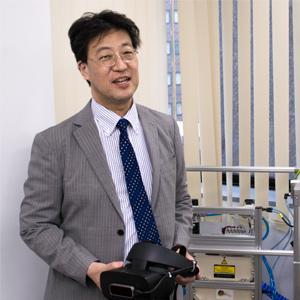THANK YOU FOR SUBSCRIBING

Susumu Matsuda, Director
Currently, humankind is facing a new crisis and is required to respond to it. The global environment is changing and the opportunities to face major disasters are increasing year by year. Unexpected disasters (natural, general, industrial accidents, human-made accidents) are included in this, and improvement of their coping ability is required. Educational means for case studies of disaster occurrence situations and acquisition of disaster response methods are in place. In order to further improve safety through the safety education, it is necessary for each individual to raise their awareness of danger. Recently, we have conducted education to improve sensitivity by experiencing danger through VR, and the results of improving awareness have been achieved. Apart from this, there are many cases where psychological damage is caused by actual disasters, which is a problem, and it is necessary to provide means for psychological care.
From 2020, there is a serious need to deal with viruses that are changing rapidly worldwide. In order to reduce the damage caused by virus infection, it is required to reduce contact between people, and
Initially, VR developed around the visual and auditory senses, which are the main five senses. We have found that the content of transmission directly affects human sensitivity by adding new sensory reproductions by touch and smell. These show that understanding the mechanism of human beings as living things, and VR of five senses based on psychology, cognition, and sensibility functions as a means to transmit emotions beyond the language barrier. Specifically, tactile reproduction is realized by a reproduction method that applies the mechatronics control of the robotic control approach. In the future, all functions including these will be able to be transmitted remotely by using the network. In addition, feedback control based on the sensing results is realized by ultra-compact real-time sensing using MEMS, which is equivalent to skin sensation. In this way, VR continues to evolve.
We aim for more secure and efficient information transmission using VR. We will elucidate the mechanism by which human biological sensory reproduction influences emotions, optimize it for each individual, and realize a more efficient and safe mechanism for touching emotions. In order to construct these mechanisms concretely, it is necessary to understand engineering technology and the biological mechanism of human beings, and to establish a mechanism that acts on emotions through the sensory organs and the brain from a medical point of view. Therefore, it is most important to combine medical and biological knowledge with engineering knowledge. VR can be used in a wide range of fields to maintain human safety, as a better means of communication, as an efficient educational means, and as a mechanism to care for people's feelings, and will continue to evolve.


